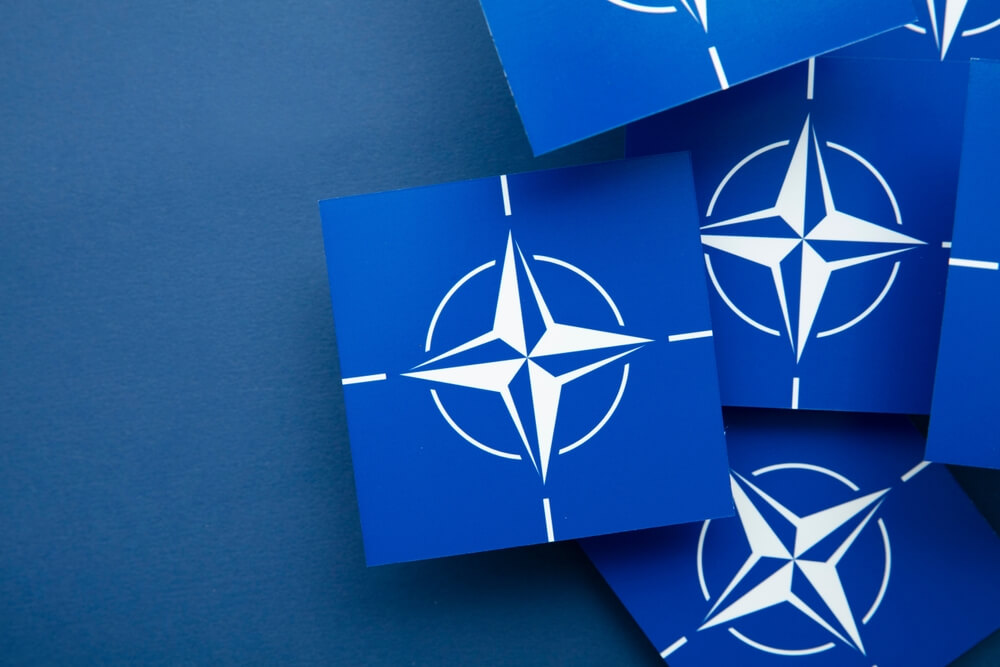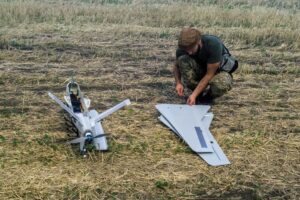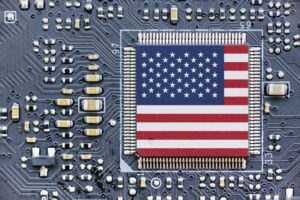The new NATO secretary general has the opportunity and experience necessary to lead a global effort to cripple Russia’s war against Ukraine by tightening global export controls on semiconductors that are currently enabling Moscow’s arsenal.
The appointment of Mark Rutte, the former prime minister of the Netherlands, who became NATO secretary general on Oct. 1, offers hope for a more aggressive approach in ensuring that Western semiconductors, the brains of all modern weapons, become decisively more difficult for Russia to obtain.
Rutte’s appointment comes as Russian weapons against Ukraine are functioning thanks primarily to U.S.-made electronics. The U.S. Senate Permanent Subcommittee on Investigations released a devastating report earlier this year concluding that products from four U.S. semiconductor manufacturers – AMD, Analog Devices, Intel and Texas Instruments – were the most prevalent in Russian weapons on the battlefield.
European and Asian semiconductor manufacturers also produced some of these foreign-origin components, including computer chips. Weapons originating from Iran and North Korea found on the battlefield also contained a significant volume of U.S.-origin semiconductors.
Overwhelmingly, the method used to evade U.S. export controls for U.S. produced computer chips is to ship them first to Hong Kong or China and then divert them to Russia. Secondarily, the United Arab Emirates, multiple countries bordering Russia and NATO members Finland and Turkey were also a source of transshipments of illicitly exported semiconductors to Russia.
Stoltenberg’s tenure – low priority on export controls
Jens Stoltenberg, the former NATO leader, did stellar work over his decade of leadership to bring the NATO alliance back to life as a cohesive mutual defense pact in the face of Russian aggression against Ukraine. While admirable, his on-the-job training and results regarding the unparalleled importance of semiconductors in all things military fell far short.
In his swan song essay in Foreign Affairs in July 2024, Stoltenberg highlighted NATO’s flagship projects. Semiconductors did not make his list. In fact, Stoltenberg mentioned semiconductors in his essay only once. He chided Chinese President Xi Jinping for wanting the world to believe China was promoting peace while it secretly fueled Russia’s war against Ukraine by sending Russia advanced semiconductors Russia could use in the aircrafts, tanks and missiles it manufactures. He said: “But [Xi] cannot have it both ways. At some point, China support for Russia’s illegal war must come with a cost.”
Stoltenberg gave no hint whatsoever what that cost might be or when or how it might be imposed. Crucially, he never mentioned the seismic failure of the Wassenaar Arrangement, the global, voluntary export control regime governing semiconductors and what might be done to replace it given that Russia as a member is holding it hostage and has made reaching consensus on anything virtually impossible.
What Stoltenberg never learned was this — semiconductors are not simply another important technology or even a “first among equals” technology. Semiconductors are alone in a class of the first order because they undergird all modern military technologies.
New NATO chief a student of semiconductor industry
NATO’s selection of Rutte as the new secretary general is an inspired choice, but not for the reasons typically given.
Profiles of Mark Rutte often focus on his ability to wear Teflon well as the Dutch prime minister and as a Trump whisperer. Almost never mentioned though is one of his most important abilities – he understands the semiconductor industry and technology export controls.
As the prime minister of the Netherlands since 2010, he had to become familiar with ASML, the dominant Dutch technology company and the world’s sole manufacturer of extreme ultraviolet (EUV) chipmaking equipment and lithography systems. ASML also builds deep ultraviolet (DUV) semiconductor manufacturing technology, which is the next most advanced technology after EUV, in competition with Nikon and Canon from Japan.
He played a key role in the Dutch government’s decision in 2023 to prohibit higher end versions of ASML’s DUV lithography tools from being exported to China. In addition, Chinese President Xi personally challenged Rutte in a meeting for supporting Dutch export controls prohibiting ASML from selling its advanced lithography systems to China.
A NATO semiconductor export control strategy
As the new secretary general, Rutte now has the platform to lead NATO in developing a semiconductor export control strategy to address the grave challenge posed by the illicit sale of semiconductors to Russia for use in its weapons in Ukraine.
Developing such a strategy would of necessity require the cooperation of South Korea, Japan and Taiwan given their critical role in the global semiconductor industry supply chain. This Asian semiconductor outreach further supports the existing NATO policy announced by Stoltenberg in a 2023 joint statement with Japanese Prime Minister Kishida Fumio that the security of the Euro-Atlantic and of the Indo-Pacific is closely connected. Indeed, South Korea and Japan are already formal NATO Indo-Pacific Partners.
Rutte should select this semiconductor export control project as NATO’s highest priority because of the game-changing effect it would have on Russia’s war machine. Under this new NATO semiconductor export control strategy, the U.S. would need to address its own semiconductor export control enforcement failings. NATO members Finland and Turkey would have to halt the illicit transshipments of semiconductors to Russia.
European, Japanese, South Korean and Taiwanese semiconductor lithography tool and chip manufacturers would have to adopt uniform, tighter export controls based upon U.S. export controls, which are currently the world’s most rigorous. Uniformity in rules and effective enforcement are absolutely critical.
Uniformity avoids semiconductor companies in one country being economically disadvantaged by having its competitors in other countries with laxer export controls or enforcement sell semiconductor products that end up in Russia’s weapons.
The U.S. Senate Permanent Subcommittee on Investigations shined a harsh spotlight on the U.S. failure to enforce its semiconductor export controls on its own semiconductor manufacturers. Rutte provides an unparalleled opportunity for the U.S. to do more than just simply get its own semiconductor export control house in order.
Led by Rutte, this U.S. housecleaning can spur all NATO members and NATO’s Asian partners to develop a rigorous, effective and coherent global semiconductor security strategy. It would cripple Russia’s war against Ukraine.







